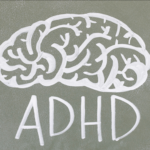
Holistic health emphasizes the interconnectedness of the mind, body, and spirit in achieving optimal well-being. In recent years, there has been a growing recognition of the benefits of integrating traditional medicine with alternative therapies.
Further reading suggestion for you: Bleeding from Anus: Understanding the Causes and Treatment Options
Content
This approach combines the best of both worlds, drawing on the strengths of each system to provide comprehensive and personalized care. By embracing a holistic approach, individuals can take charge of their health and experience enhanced wellness.
This article explores the concept of holistic health and highlights the importance of integrating traditional and alternative medicine for overall well-being.
Understanding Holistic Health
Holistic health is a philosophy that views individuals as whole beings rather than isolated parts. It recognizes that various factors, including physical, emotional, mental, and spiritual aspects, contribute to a person’s overall health.
Holistic medicine focuses on addressing the root causes of imbalances and illness rather than merely treating symptoms.
It emphasizes the body’s innate ability to heal itself and aims to support and enhance this natural healing process.
The Role of Traditional Medicine

Traditional medicine, also known as conventional or Western medicine, is rooted in scientific research and evidence-based practices. It includes treatments such as pharmaceutical interventions, surgeries, and diagnostic procedures.
Traditional medicine excels in acute care, emergency situations, and complex medical conditions requiring specialized interventions. It offers advanced diagnostic tools and therapies that can effectively manage severe illnesses and acute symptoms.
The Benefits of Alternative Medicine
Alternative medicine encompasses a broad range of therapeutic practices, often derived from traditional healing systems. These practices include herbal medicine, acupuncture, chiropractic care, naturopathy, Ayurveda, and many others. Alternative medicine focuses on promoting wellness, preventing illness, and supporting the body’s natural healing mechanisms.
It emphasizes personalized treatments, lifestyle modifications, and natural remedies to address the underlying causes of health issues. Alternative medicine often emphasizes the mind-body connection and encourages active patient participation in the healing process.
Integration for Comprehensive Care
By integrating traditional and alternative medicine, individuals can benefit from a comprehensive and personalized approach to their health. Traditional medicine’s diagnostic capabilities and advanced interventions can be combined with alternative therapies’ holistic and natural healing methods.
This integration enables patients to address not only physical symptoms but also emotional, mental, and spiritual aspects of their well-being. It allows for a more comprehensive understanding of the individual’s health and tailors treatment plans accordingly.
Collaboration among Practitioners

The successful integration of traditional and alternative medicine relies on collaboration and open communication among healthcare practitioners. A multidisciplinary team approach allows for a comprehensive assessment and personalized treatment plan.
Practitioners from various disciplines can work together to develop a holistic understanding of the patient’s health and provide a well-rounded treatment approach. This collaboration also enables the sharing of knowledge and expertise, fostering innovation and continuous improvement in healthcare.
Empowering Individuals
Holistic health empowers individuals to actively participate in their own wellness journey. By embracing an integrative approach, individuals gain access to a wider range of treatment options and can make informed decisions about their health.
Recommended for you: Water Trick for Eyesight: An Effective Approach to Improve Vision Naturally
They are encouraged to adopt healthy lifestyle habits, engage in self-care practices, and explore alternative therapies that resonate with them. Integrating traditional and alternative medicine helps individuals become advocates for their own well-being and take proactive steps towards achieving optimal health.
Conclusion
Holistic health, through the integration of traditional and alternative medicine, offers a comprehensive and personalized approach to wellness. By recognizing the interconnectedness of various aspects of health and addressing the root causes of imbalances, individuals can experience enhanced well-being.
Collaboration among healthcare practitioners and active involvement of individuals are crucial in this integrative approach. By embracing holistic health, individuals can achieve a state of balance and harmony in their mind, body, and spirit, ultimately leading to optimal wellness.

Nancy Bonney is a health blogger and the founder of her own blog about fitness. She has been blogging for three years now and loves to share what she learns with others. Nancy enjoys reading, cooking, and staying active outdoors.












